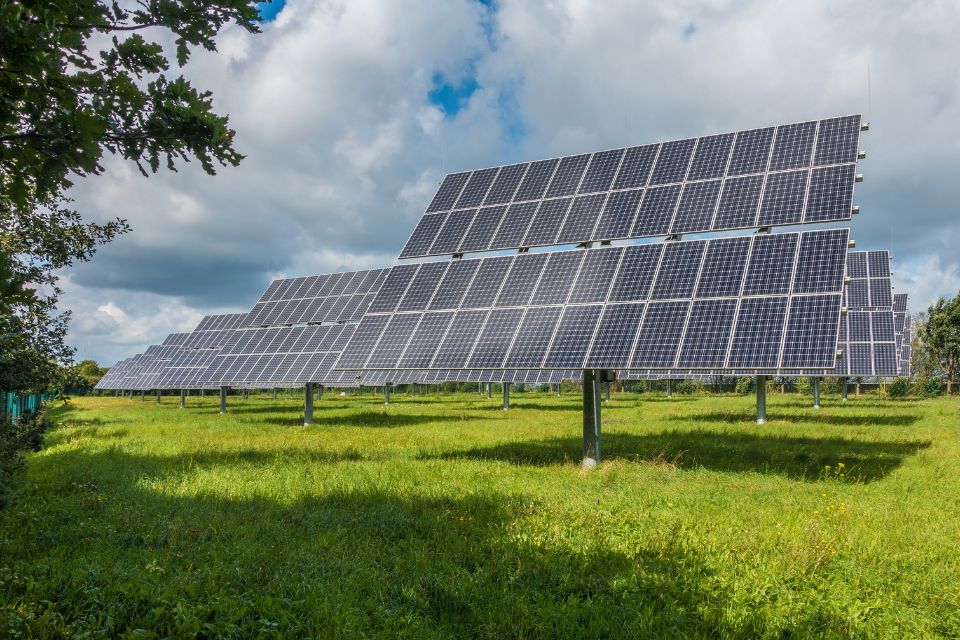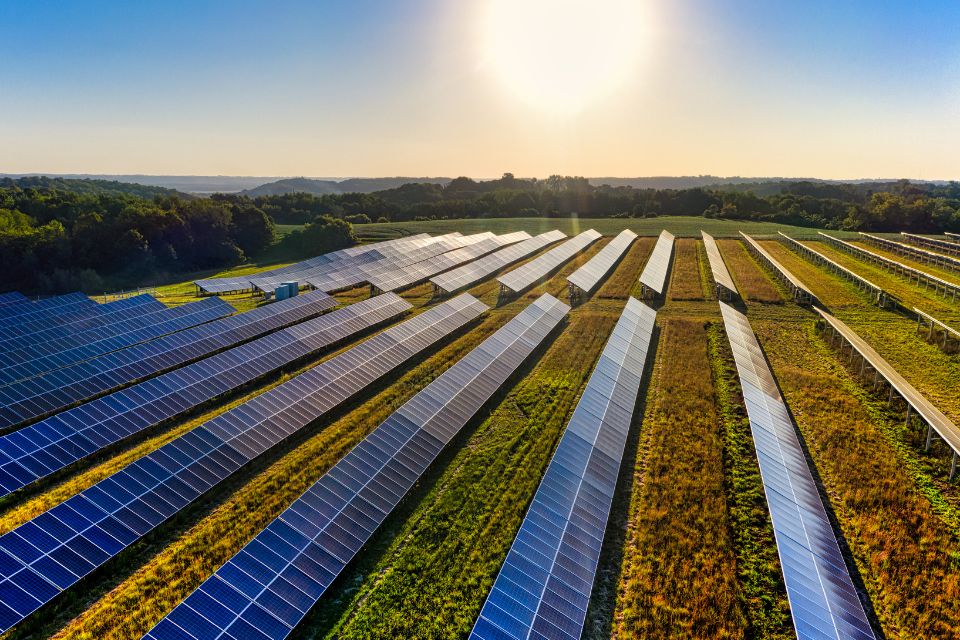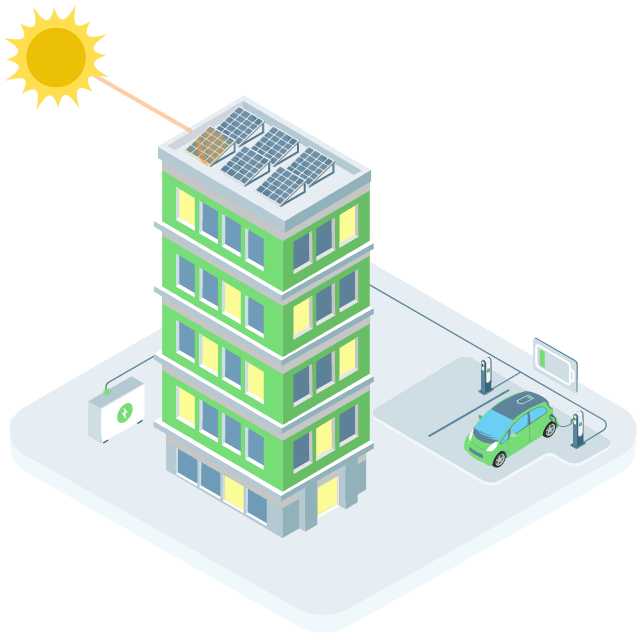Why the recent rise in solar panel installation in Northamptonshire? In recent years, the adoption of solar energy has surged as individuals and businesses seek sustainable alternatives to traditional energy sources. Solar panels, in particular, have gained popularity for their ability to harness the power of the sun and convert it into clean and renewable electricity. This article aims to provide a comprehensive guide to solar panel installation in Northamptonshire, addressing key considerations, benefits, and frequently asked questions.
Harnessing Solar Power of Solar Panel Installation
Understanding Solar Panel Installation
1. The Basics of Solar Energy
Before delving into solar panel installation specifics, it’s essential to understand the basics of solar energy. Solar panels, also known as photovoltaic (PV) panels, convert sunlight into electricity through the photovoltaic effect. This process involves the absorption of sunlight by the panels, which then generates direct current (DC) electricity.
2. Components of a Solar Power System
A typical solar power system comprises several components, including solar panels, inverters, mounting structures, and a monitoring system. Solar panels are the primary energy generators, while inverters convert the DC electricity into alternating current (AC) for use in homes and businesses.
3. Site Assessment
Before proceeding with solar panel installation, a thorough site assessment is crucial. Factors such as roof orientation, shading, and available space impact the efficiency of the solar power system. In Northamptonshire, where weather conditions vary, assessing the local climate is also important to optimise energy production.

Solar Panel Installation Process
4. Finding a Reputable Installer
Choosing a reputable solar panel installer is a critical first step. Look for certified professionals with experience, like Patrick Belloh – Director of Belloh’s Electrical Services, who is Napit registered, MCS certified, RECCA and Trading Standards approved. Reading reviews and checking certifications can help ensure a reliable installation.
5. Designing the System
Once you’ve selected an installer, the next step is system design. This involves determining the number of panels, their optimal placement, and the overall system capacity. A well-designed system maximises energy production and ensures a seamless integration with your property.
6. Obtaining Permits
Solar panel installations often require permits from local authorities. Your chosen installer should be familiar with Northamptonshire’s regulations and handle the permit application process on your behalf.
7. Installation Day
On the scheduled installation day, the installer will mount the solar panels on your roof or another designated area. This process typically takes one to three days, depending on the system’s size and complexity.
8. Connection to the Grid
After installation, the system needs to be connected to the grid. This step involves coordinating with your utility company to ensure a smooth transition to solar-generated electricity.
9. System Activation
Once connected to the grid, the solar power system undergoes activation. Your installer will test the system to ensure it is functioning correctly, and you can begin enjoying the benefits of clean energy.
10. Monitoring and Maintenance
Regular monitoring and maintenance are essential to keep your solar power system operating at peak efficiency. Monitoring systems allow you to track energy production, while periodic maintenance checks by professionals ensure optimal performance.
Benefits of Solar Panel Installation in Northamptonshire
11. Environmental Impact
One of the primary benefits of solar panel installation is its positive environmental impact. Solar energy is a clean and renewable resource that significantly reduces carbon emissions, helping combat climate change.
12. Cost Savings
While the initial investment in solar panels may seem substantial, the long-term cost savings are significant. Solar power systems can lead to reduced electricity bills and, in some cases, even allow homeowners to sell excess energy back to the grid through net metering.
13. Energy Independence
Solar panel installations provide a degree of energy independence, reducing reliance on traditional energy sources. This can be particularly advantageous during power outages or when energy demand is high.
14. Increased Property Value
Homes equipped with solar power systems often have higher property values. The addition of solar panels is seen as a desirable feature, attracting environmentally conscious buyers.
15. Government Incentives
Governments, including the UK government, often provide incentives and subsidies to promote solar energy adoption. These incentives can significantly offset the initial installation costs.

Frequently Asked Questions (FAQs)
Q1: How much sunlight does Northamptonshire receive?
Northamptonshire receives an average of around 1,600 hours of sunlight per year. While this is lower than some southern regions, it is still sufficient for effective solar panel operation.
Q2: What is the typical payback period for a solar panel installation in Northamptonshire?
The payback period for solar panel installations in Northamptonshire typically ranges from 8 to 12 years. However, this can vary based on factors such as system size, energy consumption, and available incentives.
Q3: Can I install solar panels on a flat roof?
Yes, solar panels can be installed on flat roofs using mounting systems designed for such configurations. It’s essential to ensure proper tilt and orientation for optimal energy production.
Q4: Are there government incentives for solar panel installations in Northamptonshire?
Yes, the UK government offers various incentives, including the Smart Export Guarantee (SEG) and the Renewable Heat Incentive (RHI), which can contribute to the financial viability of solar panel installations.
Q5: How do solar panels perform in cloudy weather?
While solar panels are most effective in direct sunlight, they can still generate electricity on cloudy days. However, energy production may be reduced compared to sunny conditions.
Q6: Do I need battery storage for my solar power system?
While not mandatory, adding battery storage to your solar power system allows you to store excess energy for use during periods of low sunlight or power outages.
Q7: What maintenance is required for solar panels?
Solar panels generally require minimal maintenance. Periodic cleaning to remove dirt and debris and routine inspections by professionals are usually sufficient to ensure optimal performance.
Q8: Can I install solar panels myself?
While it’s technically possible to install solar panels as a DIY project, it is strongly recommended to hire certified professionals for safety and optimal system performance.
Q9: How do solar panels impact my home insurance?
Installing solar panels may affect your home insurance, and it’s advisable to inform your insurance provider. Some providers may offer coverage for the solar installation, while others may require adjustments to your policy.
Q10: Is my property suitable for solar panel installation?
Most properties in Northamptonshire are suitable for solar panel installation. A professional installer can assess your property during the site assessment to determine its suitability and suggest any necessary modifications.
The Demand for Sustainable Energy
As the demand for sustainable energy solutions continues to rise, solar panel installations in Northamptonshire offer a viable and environmentally friendly option. By understanding the installation process, benefits, and addressing common questions, individuals and businesses can make informed decisions about embracing solar power and contributing to a greener future.Please do not hesitate to contact us, if you would like to have some information or help with installing solar panels in your residence
